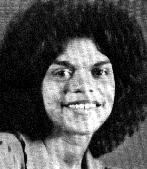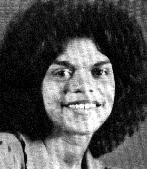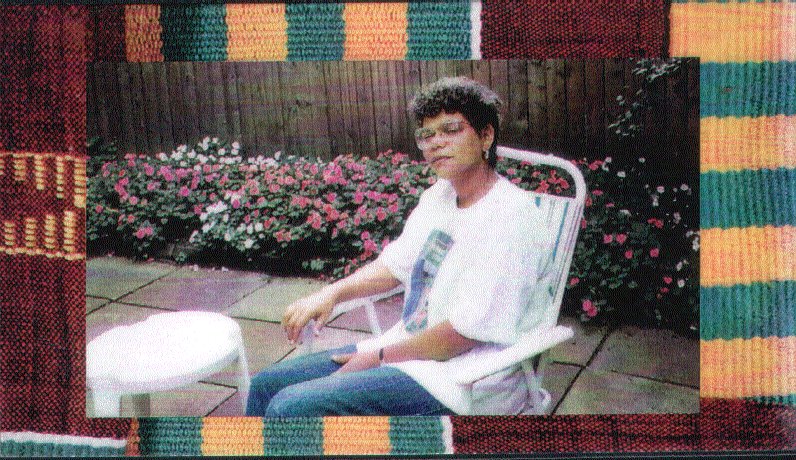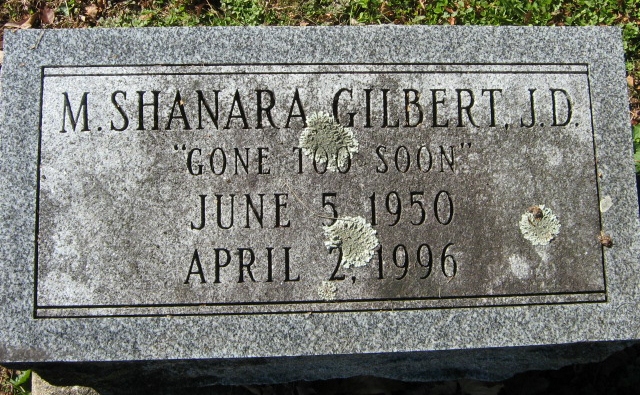The accident, in which the law school's former dean, W. Haywood Burns, also died, occurred when a truck ran a red light near Cape Town and struck the car in which they were riding, university officials said. They were attending a conference on democracy and international law at which she and Haywood were intimately involved in the drafting of South Africa's new constitution.
While a student at Syracuse University she majored in political journalism. During her college years she volunteered to work with the Attica Defense Committee, where she first met Dean Haywood Burns who was coordinating the defense team. The experience of working on behalf of prisoners profoundly changed her life.
Ms. Gilbert was a founder and co-director of the City University Law School's Defender Clinic, a member of the board of directors of the National Conference of Black Lawyers and past chairwoman of the conference's Section on Criminal Justice. After receiving a J.D. degree from the University of Pennsylvania School of Law in 1980, she worked as a staff lawyer with the District of Columbia Public Defender Service and the Massachusetts Committee for Public Counsel Services.
Ms. Gilbert worked for legal aid agencies well before becoming a lawyer, and was on the advisory board of the Neighborhood Defender Service of Harlem. In 1993, as a consultant to the Ford Foundation, she wrote a report on the status of university legal aid clinics in South Africa.
She was survived by her companion, Wayne Walcott, and two aunts, Alberta Davis of Newark and Mildred White of Philadelphia.
Shanara's memory continues in many philanthropic endeavors created in her honor:
-The Shanara Gilbert Law Clinic Library at CUNY School of Law Queens College,
-The Haywood Burns/Shanara Gilbert Award by the CUNY School of Law at Queens College,
-Shanara Gilbert Clinical Law Prize at the University of Napal,
-The Shanara Gilbert Human Rights Award by the Society of American Law Teachers,
-The Shanara Gilbert Fellowship by the Nathan Cummings Foundation.
Most notable are her laureate contributions to the world of legal scholarship:
-Racism and Retrenchment in Capital Sentencing: Judicial and Congressional Haste Toward the Ultimate Injustice, 18 N.Y.U. Rev. L. & Soc. Change 51 (1990).
-An Ounce of Prevention: A Constitutional Prescription for Choice of Venue in Racially Sensitive Criminal Cases, 81 Geo. LJ 1466 (1993).
Shanara is also remembered in law reviews and journals around the country including "In Memorium: A Tribute to W. Haywood Burns and M. Shanara Gilbert: Revolutionaries in the Struggle for Justice." by Charles J. Ogletree, Jr., Clinical Law Review 2 (2) (1996).
Of course, her greatest legacy is the sense of equal justice for all people that she instilled in all of her students. I shall always fondly remember Shanara amist my wide-eyed and defining days of law school.
The accident, in which the law school's former dean, W. Haywood Burns, also died, occurred when a truck ran a red light near Cape Town and struck the car in which they were riding, university officials said. They were attending a conference on democracy and international law at which she and Haywood were intimately involved in the drafting of South Africa's new constitution.
While a student at Syracuse University she majored in political journalism. During her college years she volunteered to work with the Attica Defense Committee, where she first met Dean Haywood Burns who was coordinating the defense team. The experience of working on behalf of prisoners profoundly changed her life.
Ms. Gilbert was a founder and co-director of the City University Law School's Defender Clinic, a member of the board of directors of the National Conference of Black Lawyers and past chairwoman of the conference's Section on Criminal Justice. After receiving a J.D. degree from the University of Pennsylvania School of Law in 1980, she worked as a staff lawyer with the District of Columbia Public Defender Service and the Massachusetts Committee for Public Counsel Services.
Ms. Gilbert worked for legal aid agencies well before becoming a lawyer, and was on the advisory board of the Neighborhood Defender Service of Harlem. In 1993, as a consultant to the Ford Foundation, she wrote a report on the status of university legal aid clinics in South Africa.
She was survived by her companion, Wayne Walcott, and two aunts, Alberta Davis of Newark and Mildred White of Philadelphia.
Shanara's memory continues in many philanthropic endeavors created in her honor:
-The Shanara Gilbert Law Clinic Library at CUNY School of Law Queens College,
-The Haywood Burns/Shanara Gilbert Award by the CUNY School of Law at Queens College,
-Shanara Gilbert Clinical Law Prize at the University of Napal,
-The Shanara Gilbert Human Rights Award by the Society of American Law Teachers,
-The Shanara Gilbert Fellowship by the Nathan Cummings Foundation.
Most notable are her laureate contributions to the world of legal scholarship:
-Racism and Retrenchment in Capital Sentencing: Judicial and Congressional Haste Toward the Ultimate Injustice, 18 N.Y.U. Rev. L. & Soc. Change 51 (1990).
-An Ounce of Prevention: A Constitutional Prescription for Choice of Venue in Racially Sensitive Criminal Cases, 81 Geo. LJ 1466 (1993).
Shanara is also remembered in law reviews and journals around the country including "In Memorium: A Tribute to W. Haywood Burns and M. Shanara Gilbert: Revolutionaries in the Struggle for Justice." by Charles J. Ogletree, Jr., Clinical Law Review 2 (2) (1996).
Of course, her greatest legacy is the sense of equal justice for all people that she instilled in all of her students. I shall always fondly remember Shanara amist my wide-eyed and defining days of law school.
Family Members
Sponsored by Ancestry
Advertisement
Explore more
Sponsored by Ancestry
Advertisement






